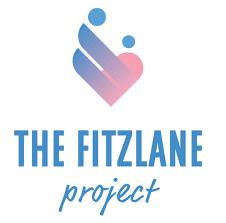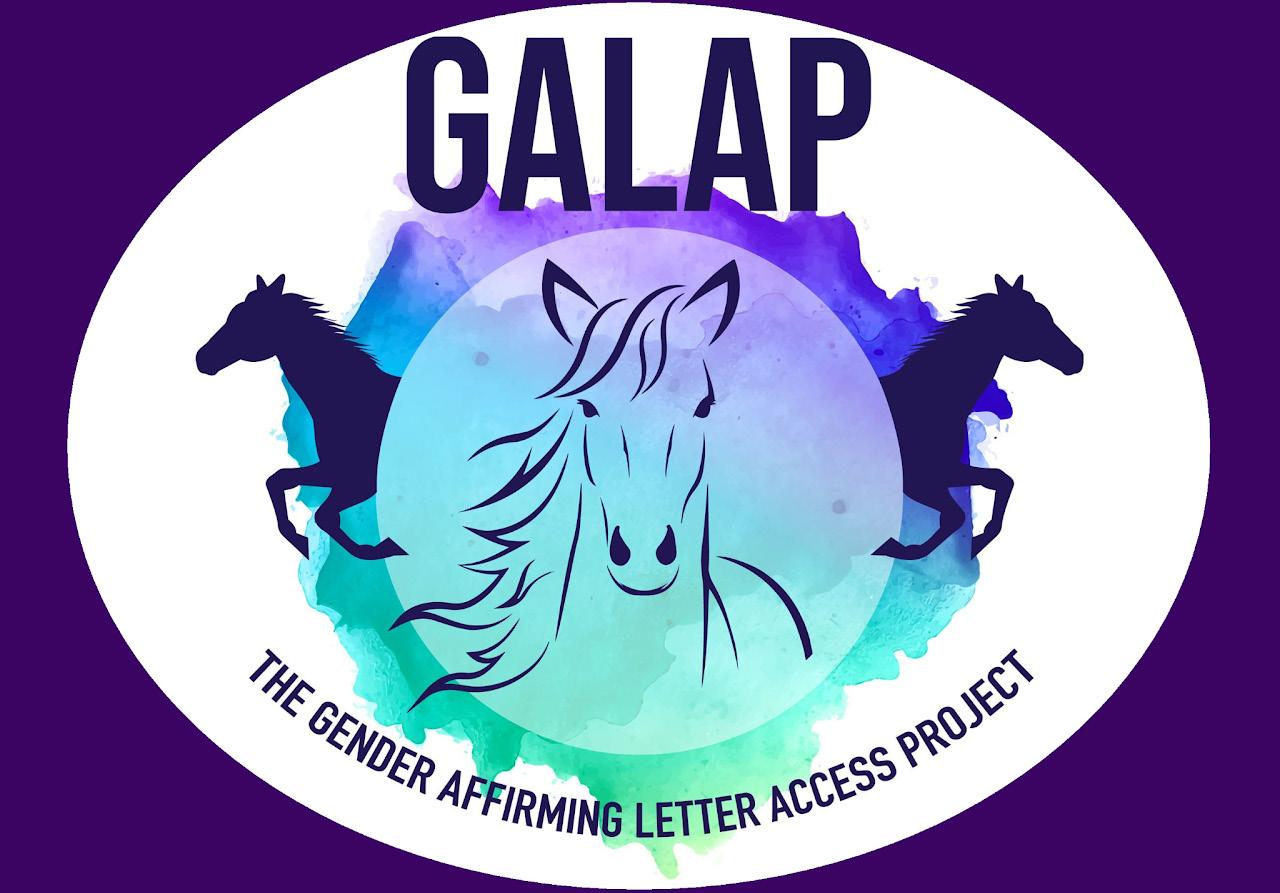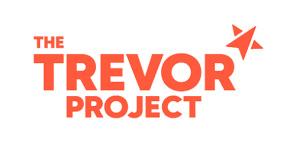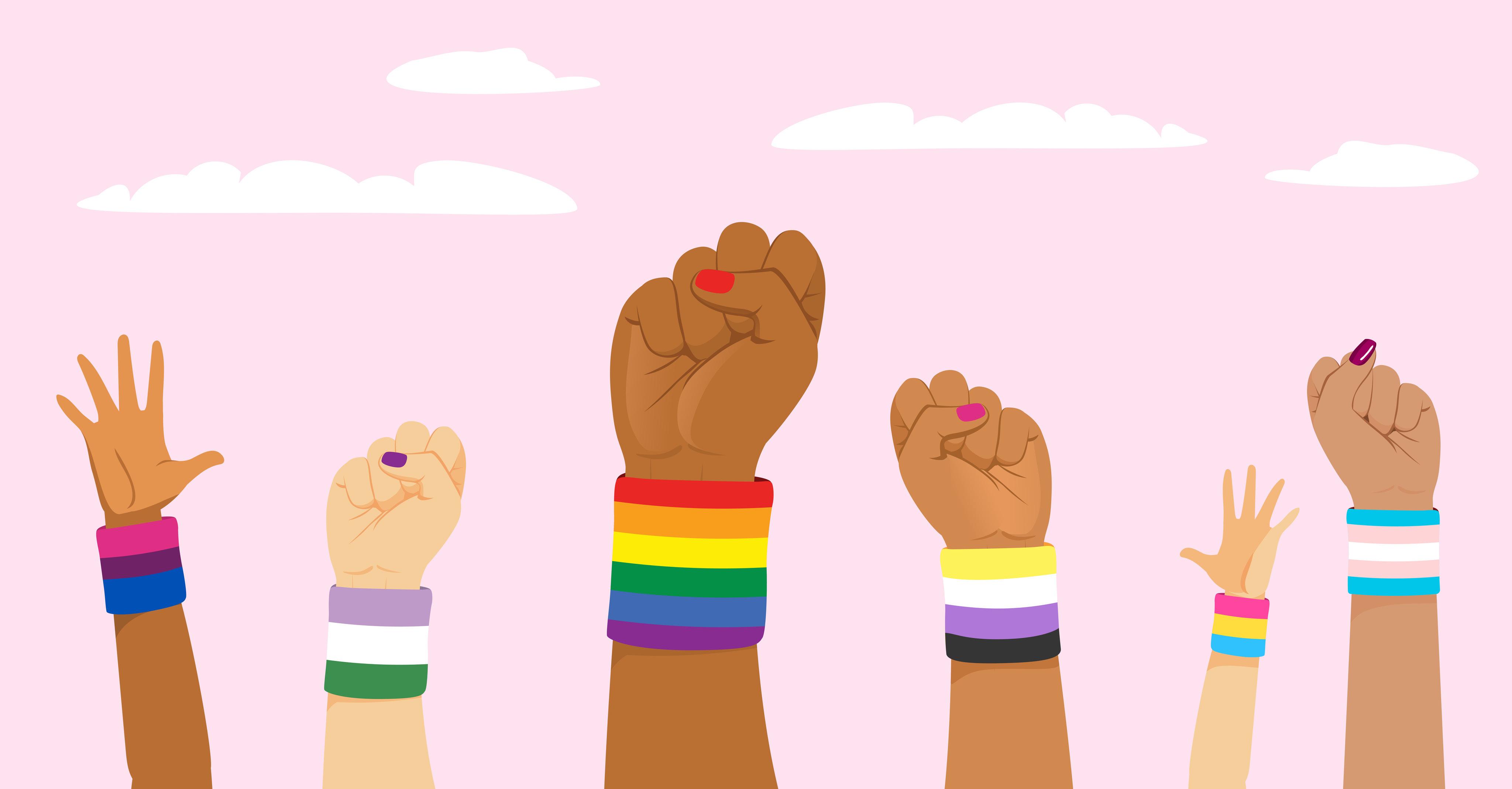










Kyra Steinnecker, LMHC specializes in working with the LGBTQ+ community, the polyamorous and CNM/ENM community, and the kink community, and she is currently in a program working toward becoming a Florida Certified Sex Therapist. She assists people with tackling anxiety, managing life transitions, improving communication, exploring values, navigating through the impact of trauma histories, and creating healthy relationships with themselves and others. Her therapeutic style is interpersonal-existential, and she uses an open, direct, holistic, and active approach in sessions.
Heather McGovern is a queer neurodivergent person who is also a Licensed Clinical Social Worker with 12 years of experience working in the mental health field. They spent the first 10 years working with nonprofit organizations focusing on children in foster care. About 2 years ago, although they loved working with the adolescents and teenagers who desperately needed to be heard, they knew that it was time to make a move toward their passion and provide needed services to the LGBTQ and neurodivergent populations within this area. Their practice is currently listed as Heather McGovern, LCSW but soon you can find them branded as Liminal Mindcare.
Haley Morrissette, the 2024 NASW-Florida Social Worker of the Year, is a dedicated and compassionate social worker and community therapist, known for her expertise in trauma therapy and crisis counseling. With a Master’s in Social Work from the University of West Florida and six impactful years in the mental health field, Haley has been a beacon of support for individuals navigating trauma. Her approach seamlessly integrates therapeutic insight with community advocacy, ensuring holistic healing for her clients.
As a trauma therapist, Haley’s commitment to mental health extends beyond individual therapy sessions. She is the Senior National Organizer for Dream Defenders, where she leverages her crisis counseling experience to implement national initiatives that advocate for freedom and liberation. Her unique blend of therapeutic skills and advocacy work has made her a respected figure in the mental health community.




S. Grace Skrobisz is a Registered Mental Health Counselor Intern for the state of Florida, under Qualified Supervision, completing her requirements for an LMHC. She specializes in working with women and lesbians, anyone with a trauma history, and all who identify as members of the LGBTQ+ community. She is passionate about social and racial justice, and strives to provide culturally informed care to people from diverse backgrounds. Her approach is warm, non-judgemental, humanistic, and holistic.
Jaxson Stone is a a Pensacola-raised, Brooklyn-based artist, editor, and educator of the built environment. They publish cartoons in an intermittent newsletter called, psychic interiors and are the associate editor at METROPOLIS magazine. Their work has also appeared in Hyperallergic, The Architect's Newspaper, Crafts, Architectural Digest, TASTE, among others.
Tara is a behavior scientist who works with children with Autism and their families. She is a trauma survivor with professional experience in child protective services and community-based behavioral health care. In her free time she enjoys bird watching and foraging wild edible plants and fruits. She shares her home with two cats.
Eleanor Phoenix (she/they) is the owner of Inclusive Counseling and a Registered Mental Health Counselor Intern for the State of Florida, under Qualified Supervision, completing their requirements for LMHC. They love working with people exploring their identity and navigating barriers to mental wellness by uncovering their strengths, confronting limiting beliefs, and cultivating the skills needed to create meaningful change in their lives. They are passionate about gender-affirming care and creating truly safe and affirming environments. Eleanor provides a client-centered approach, incorporating techniques from narrative therapy, Internal Family Systems (IFS), and guided meditation. Committed to inclusivity and diversity, Eleanor fosters an empathetic and supportive therapeutic space for individuals from all walks of life.



PensaPride asks:
What signs does your body give you that suggest it's time to engage in self-care or grounding activities?

OK, well, first, are we responding to acute or chronic stress? I think this is something we don't account for when thinking about self-care in general. A lot of people are enduring chronic stress, particularly in the LGBTQ+ community as a whole, because we’re a minority group. So It's important not just to know the acute signs, which most people know: fast heart rate, short breath, clammy, sweating, tingling, numbness, all the signs that come with an anxiety attack or panic attack. Most people recognize these. I think we get ourselves in trouble because we're not paying attention to chronic signs of stress in the body.
Just the other day, I was having this conversation with a client that I was working with, and I asked a series of questions: How are you eating? How are you sleeping? Are you experiencing exhaustion and then trying to push through that? Are you crashing multiple times in a day? Are you waking up multiple times in a night? How often do you find yourself having aches and pains? These can all be different ways that your body is trying to tell you that it needs some care and grounding.
Like all things, the context of the answers to those questions must be tailored to the individual! What if somebody is navigating chronic conditions or disability? If someone is neurodivergent, they may have to do extra tasks related to squeezing themselves into a neurotypical environment. How many “spoons” do you have? How many “spoons” are used for different tasks? We’re already trying to navigate daily tasks that cost more energy than it might for somebody who's not (p.s. check out spoon theory if you aren’t familiar with it!). No matter what, it takes energy to navigate the world and advocate for access in ways that are tailored to our needs and that contributes context to how the body may signal the need for self-care and grounding.
What would you like the community to know about you and your approach to supporting mental wellness?
What activities have you encouraged your clients to engage in when they are faced with the messy process of detangling and processing complex emotions?
So, like the question, the answer to that is kind of complex and definitely can’t be adequately addressed in a shorter interview. However, I think you'll find a trend with me that I'm always looking to answer what's something that’s just coming up in the moment versus what is a continuing pattern that someone is engaging in that’s leading them to end up in the same types of situations. As a result, the answer is very individualized for each person!
However, a lot of what I talk to my clients about, particularly when they're trying to process what to do through complex emotions in difficult situations, is how to define their boundaries and manage what is in their zone of control. There are things that we can do something about and things that are outside of our control. We do have a zone of influence, kind of like in between, right? But a lot of times, it seems like we may struggle with figuring out what to do with complex situations and emotions because we’re overreaching into spaces that we largely can't do anything about directly and then struggling with setting healthy boundaries for ourselves as a result.
This can become an important conversation too when we start thinking about the politics that are surrounding us right now as minority groups across the country are actively being targeted, right? What is in our zone of control? What can we do to influence things, what is just completely out of our hands, and how do we manage the emotions left in the wake of those questions? Aside from doing work and processing in therapy, I might invite people to find and do what is in their control and helps them feel empowered in safe ways, or to take a look at their values and try to recalibrate their world to ensure it matches those values in ways that fit better for them, or to lean in on healthy social support to be able to talk about the feelings that they have concerning things outside their control.
Providing services and doing counseling with the LGBTQ+ community has been in my heart from the beginning. Throughout my education, I always focused on making sure that all my training was applicable in some capacity to my community. I am also currently in the process of getting state-certified to be a sex therapist in Florida, and I'm very excited about that process. My focus, in general, has always been on sex, sexuality, and identity. My practice serves almost exclusively LGBTQ+ (big representation from my transgender, enby, genderqueer/non-conforming, agender, and spectrum sexualities), polyam/CNM/ENM, and kink communities, which I absolutely love. I love to help people unravel patterns of living that are keeping them stuck and spinning their wheels. I love helping people with boundaries, communication, life transitions, unraveling anxiety, and just creating their world to be a space they feel fulfilled and authentic in. As a therapist, I want people to feel comfortable, understand their experiences, and recognize how they can empower themselves to challenge the world around them and say, “Yes, I do exist.”

The term “Masking” is used quite frequently within the neurodivergent community. Neurodivergent folx tend to mask in order to cope and try to fit into the neurotypical world, with the goal usually being not to draw extra attention to themselves. As a mental health therapist whose clients are mostly neurodivergent and/or queer, I have become interested in the topic of masking for those of us in the LGBTQ+ community as well. For those of us who are no longer closeted and are out, you may not feel like masking applies to you. However, most of us have been in scenarios at least once in our lives where we feel that we need to manage how “gay we look”. This in itself is masking. Of course, those who are still closeted typically engage in masking to protect themselves. Either way, masking is a thing that neurodivergent and, I believe, LGBTQ+ folx do when we're around others in order to feel safer than we do when we are not masking.
Those of us within the neurodivergent community know that masking takes a huge toll on the amount of energy we have available to budget throughout the day. This would affect LGBTQ+ maskers similarly. The reason it is important to know that is so LGBTQ+ maskers can effectively manage the emotional energy they have in order to deal with their everyday lives.
After speaking to several clients and close friends or partners, I was given several examples of how they masked their queerness. I heard multiple examples, and it inspired me to create the accompanying collage. I heard about folx, who heavily leaned into their masculinity in order to hide that they were questioning their gender identity. I heard about a person who made themselves vulnerable to heteronormative advances in order to prove to themselves that they were capable of that kind of arousal. I even heard from a person who learned best how to mask from their father, who was a minister and evangelical clown (literally). Do you see any of your masking behaviors represented within this collage?
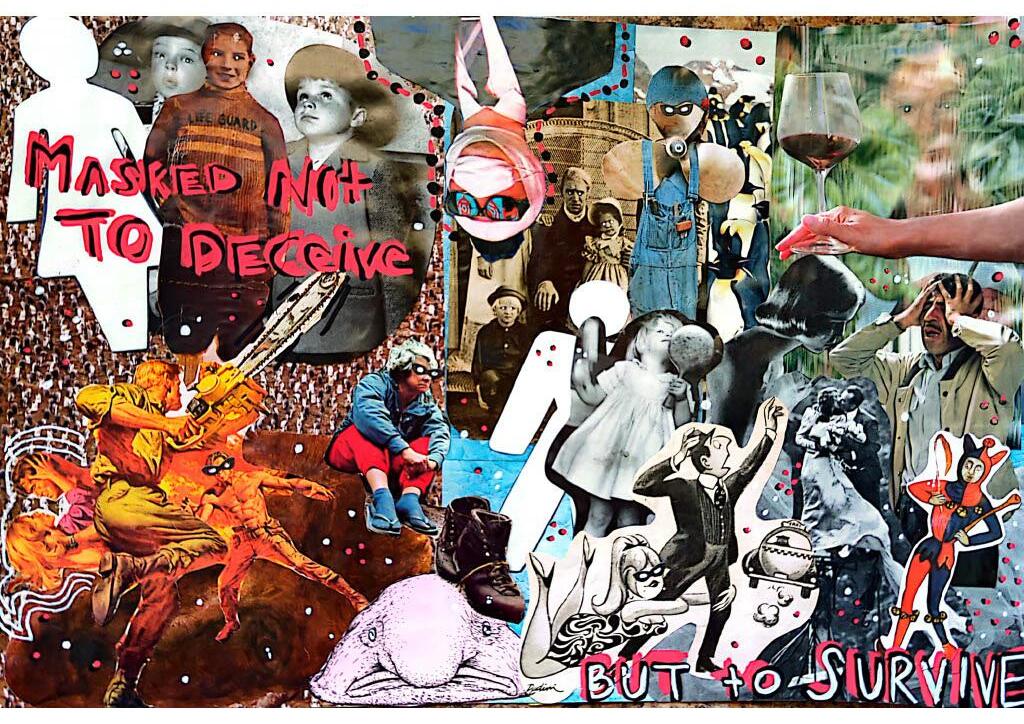
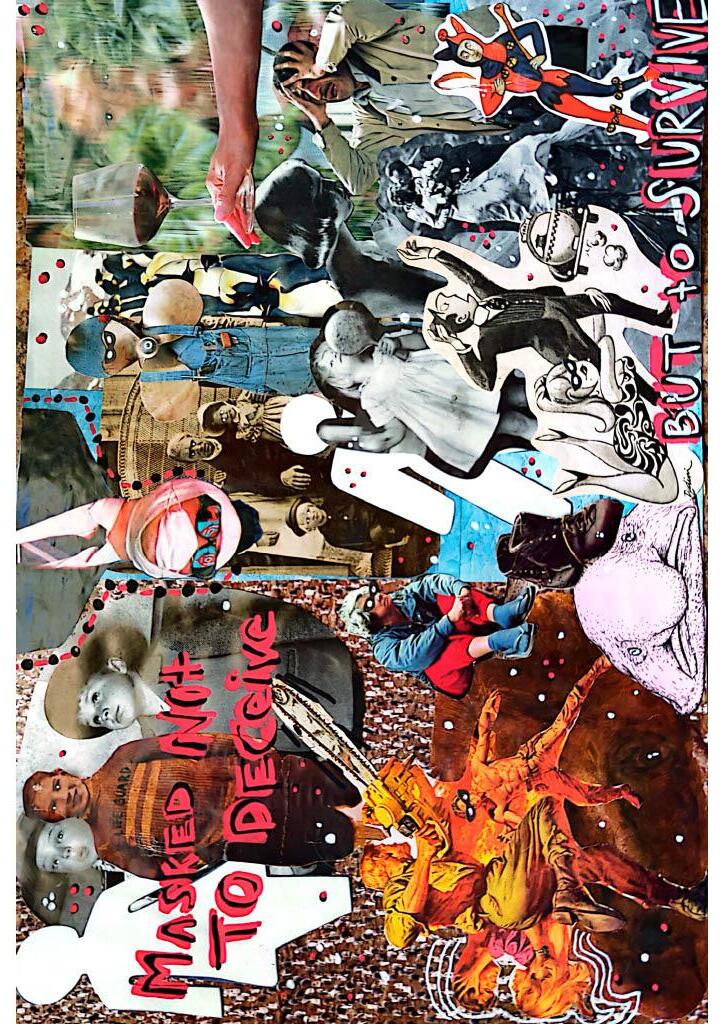
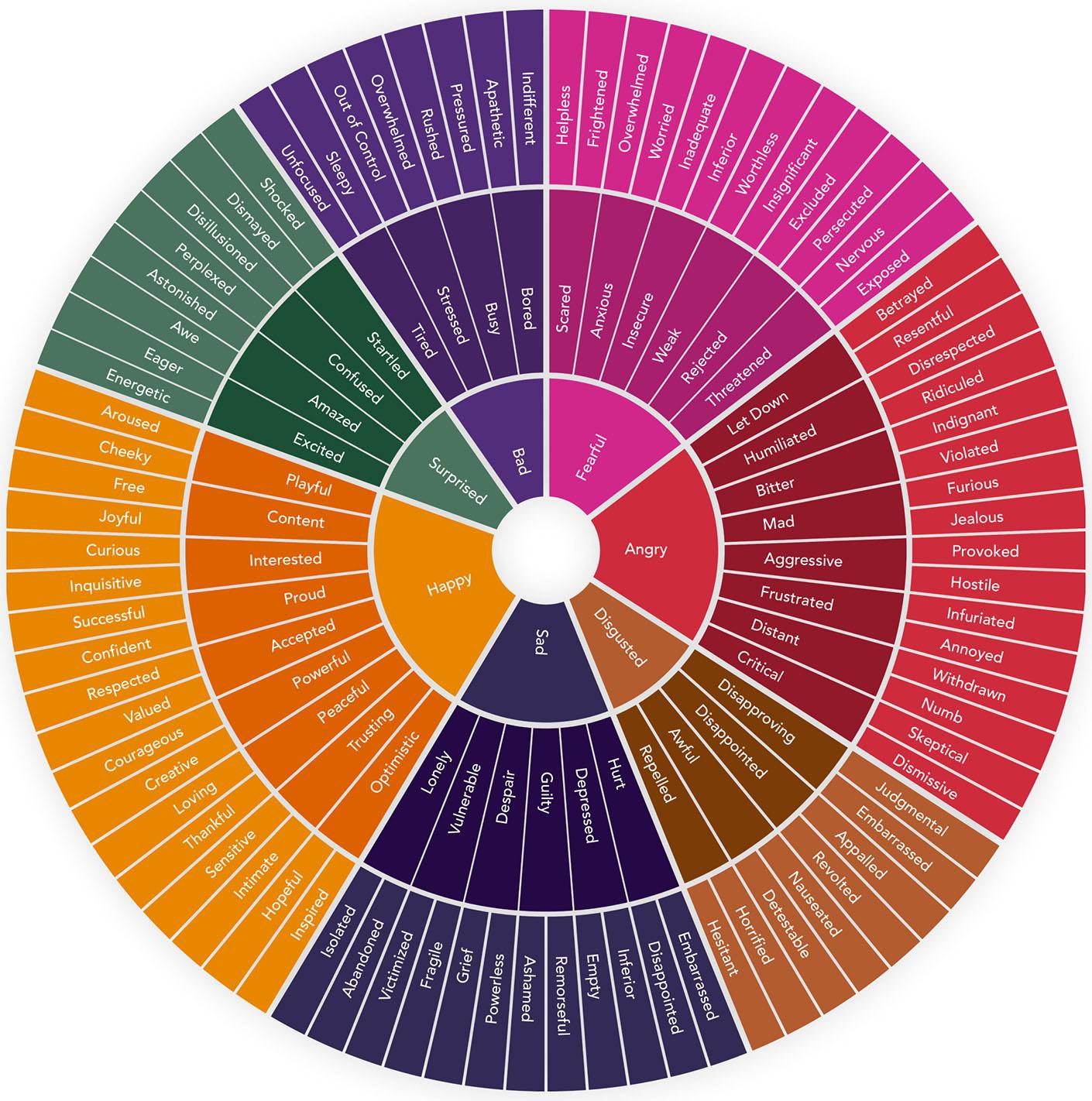

The Feelings Wheel is an excellent tool to help you understand and process your emotions, which is a crucial step in becoming more emotionally literate. It's also a great tool for communication, or even journaling exactly how you're feeling. Scan the QR code to learn more about this valuable resource!

PensaPride asks:
What are Affirmations, and how can they be used to support Mental Wellness?
Affirmations are powerful, positive statements that can transform your mental wellness from the inside out. Think of them as your personal cheerleaders, reminding you of your strengths, worth, and potential every step of the way. These statements are designed to challenge and overcome self-sabotaging thoughts and negative patterns. By repeating affirmations regularly, you can start to shift your mindset and create a more positive outlook on life. Incorporating affirmations into your mental wellness routine is like adding a new layer of resilience and positivity to your life. They empower you to take control of your thoughts and nurture a healthier, more optimistic mindset.
What activities have you encouraged your clients to engage in when they are faced with the messy process of detangling and processing complex emotions?
I've encouraged clients to engage in journaling, mindfulness meditation, and creative expression like art or music to help process complex emotions. These activities provide a safe outlet for exploring feelings, promote self-awareness, and can be incredibly therapeutic. Additionally, physical activities like yoga or walking can help ground and calm the mind, making it easier to navigate the emotional turmoil.
What advice would you consider offering someone who is motivated to start taking steps to improve/support their mental wellness?
Start small and be consistent: establish a daily routine that includes self-care activities like mindfulness, exercise, or journaling. Reach out for support, whether it's talking to a trusted friend, joining a support group, or seeking professional help. Set realistic goals and celebrate your progress, no matter how minor it seems. Remember, mental wellness is a journey, not a destination, so be patient and kind to yourself along the way.
What would you like the community to know about you and your approach to supporting mental wellness?
My approach to clinical practice is deeply rooted in empathy, cultural sensitivity, and trauma-informed care. I emphasize creating a safe, non-judgmental space where clients feel heard and supported. Integrating evidence-based techniques like cognitive-behavioral therapy (CBT) and mindfulness and using the tool of empathetic listening, I tailor my methods to meet each individual's unique needs. Community members should know that my goal is to empower them on their healing journey, promoting
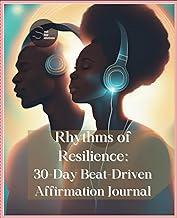








Build a motivational playlist. List the song, artist, and lyrics that make you feel good. Utilize this tool throughout the day to keep you elevated.
Song:
Artist:
Favorite Lyric:
Song:
Artist:
Favorite Lyric:
Song:
Artist:
Favorite Lyric:
Song:
Artist:
Favorite Lyric:
Song:
Artist:
Favorite Lyric:
Scan the code to grab your own copy
text and be sure to check out the next page for PensaPride's motivational playlist!


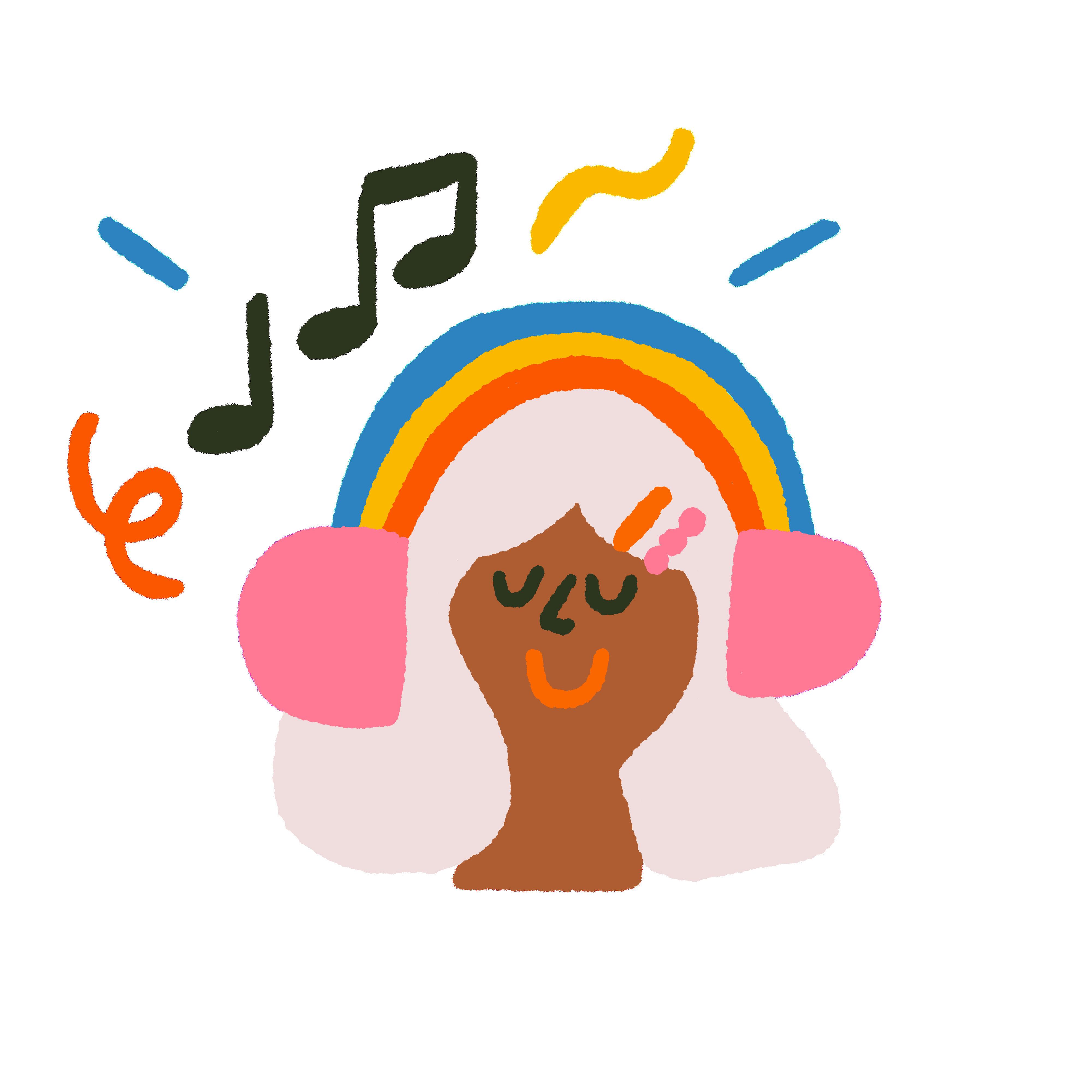


Build a motivational playlist. List the song, artist, and lyrics that make you feel good. Utilize this tool throughout the day to keep you elevated.
Song: "It's My House"
Artist: Diana Ross
Favorite Lyric: "There's a welcome mat at the door. And if you come on in You're gonna get much more. I put my name in the ceilin' above 'cause it was built for love. It was built for love."
Song: "Together Again"
Artist: Janet Jackson
Favorite Lyric: "Everywhere I go, every smile I see. I know you are there smilin' back at me. Dancin' in moonlight, I know you are free. 'Cause I can see your star shinin' down on me."
Song: We Like to Party! (The Vengabus)
Artist: Vengaboys
Favorite Lyric: "Hey now, hey now, hear what I say now. Happiness is just around the corner! Hey now, hey now, hear what I say now. We'll be there for you!"
Song: The Ballad of Bilbo Baggins
Artist: Leonard Nemoy
Favorite Lyric: "Now, hobbits are peace-loving folks, you know. They're never in a hurry and they take things slow. They don't like to travel away from home. They just like to eat and be left alone!"
Song: "Feels So Good"
Artist: Chuck Mangione
Favorite Lyric: VIBES ONLY

These are tremendously challenging times, and we know all the reasons why. Global and national crises are weighing heavily on our collective souls and spirits. Just existing in these challenging times can dysregulate us mentally and emotionally, even while carrying various social privileges. As members of the LGBTQ+, we are part of a group of people who are hated by many individually, and we experience systemic and institutional oppression in this country. Being institutionally and systemically oppressed and managing the many challenges and concerns of today’s world can take its toll on our mental and emotional well-being. Caring for one’s mental and emotional health is a matter of survival.
Despite the external forces of global and national challenges and concerns coupled with systemic oppression, we can remain mentally and emotionally well. This is both good news and bad news. The bad news is that we cannot blame external circumstances for our personal internal health, even though it is a challenging factor. The good news is that our mental and emotional health is completely under our control. In fact, it is our responsibility to take care of ourselves emotionally and mentally, especially under challenging external factors. We are the only ones who can do that for ourselves. This is true self-care, not getting a facial or a pedicure. Doing so not only makes us stronger and healthier but it also enables us to be more effective activists and community members.
A method I share with my clients to help them take charge of their emotional and mental well-being is something I call the “Monitor and Manage” method. First, you must have a tool to Monitor your anxiety/distress/stress and do so daily and throughout the day. A useful tool for monitoring oneself is the S.U.D.S. thermometer (Subjective Units of Distress Scale) pictured below:
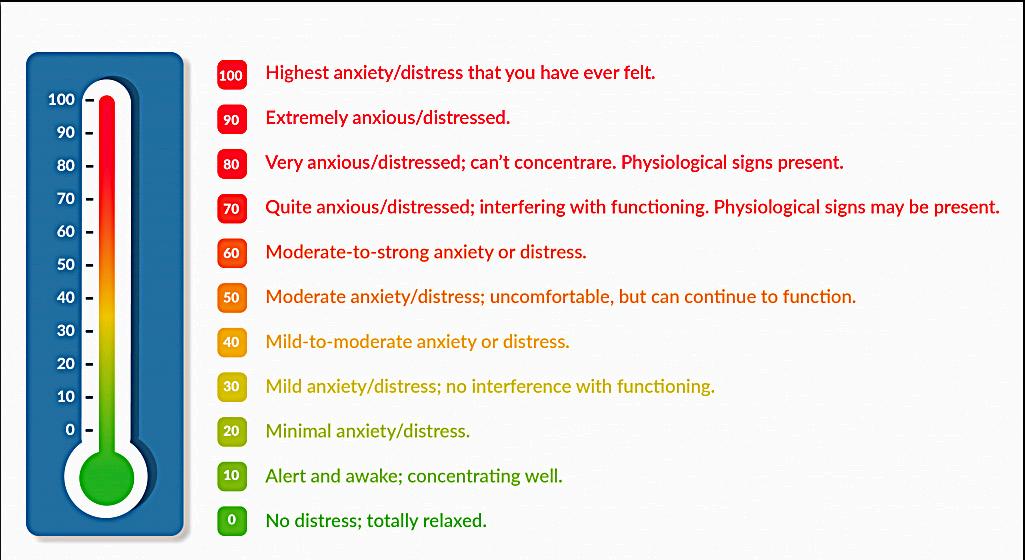
Use this scale to check in with yourself and if you are at or near 50%, Manage your distress with a relaxation technique!
Take time for yourself and use a technique that you know works for you. There are many options. Scan the QR code below to check out some ideas if you don't know where to start:

If you are chronically and historically anxious and waking up at or above 50% every morning or have experienced a lot of personal traumas, seek Support. A mental health professional can help you build a solid toolkit of distress tolerance techniques and help you find your way to a calmer, happier, more healed way of life. Caring for our emotional and mental health with these challenging external factors seems impossible. But it is not. However, it does take intention, dedication, consistency, grace, skill, and self-love. Skills can be learned, practiced, and implemented. The rest is up to us. If you struggle with self-love, a mental health professional can help you learn how to foster a better relationship with yourself. Therapy is also self-care check out page 2 for more information on Grace's
Artwork courtesy of Jaxson Stone, a Pensacola-raised, Brooklyn-based artist, editor, and educator of the built environment. They publish cartoons in an intermittent newsletter called psychic interiors and are the associate editor at METROPOLIS magazine. Their work has also appeared in Hyperallergic, The Architect's Newspaper, Crafts, Architectural Digest, TASTE, among others.



PensaPride asks: What comes to mind for you when you think of Mental Health First Aid?
Mental Health First Aid is the process of recognizing the presence of current, ongoing emotional trauma and removing the source of the harm and suffering. Sources of emotional trauma can be external (environmental) or internal (physiological). Identification of the relationship between the source of trauma and the emotional pain that it causes is the first step in Mental Health First Aid. From there, steps can be taken to stop the process of ongoing trauma and switch to focus on recovery.


How do you know when it’s time to engage in Mental Health First Aid for yourself?
I'm in active recovery from addiction to mood-altering substances, so I know I am at serious risk of mental health harm if the deep-seated unease that I used to feel before I used substances is triggered by an external or internal stimulus. Fortunately, this does not happen often, and I generally know I am experiencing emotional trauma when a harmful interaction or thought evokes thought patterns of hopelessness and absolute pessimism. That's usually when I start to observe my thoughts and put some space between my observing Self and my emotions. From there, I can develop a plan to avoid the traumatic situation in the future.

What activities have you encouraged your clients to engage in when they are faced with the messy process of detangling and processing complex emotions?
As a practitioner informed by narrative therapy, I encourage clients to rewrite their stories by reflecting on their past resilience and focusing on their strengths. They can identify the key stories they tell themselves about their life and identity and reflect on how these stories impact their emotions, behaviors, and overall well-being. Clients choose a story that feels disempowering and rewrite it from a perspective of strength and resilience. They can externalize problems; rather than saying, “I’m a failure because I can’t keep a job,” they can say, “job insecurity is a problem that I am facing right now,” which helps them see these issues as challenges they can overcome rather than inherent parts of themselves. This also acknowledges the impact that external systems and societal factors have on the problem.
When you recognize that you are experiencing emotional distress, what tools do you reach for first?
I encourage my clients to build a grounding kit that ideally has one tangible pocket-sized item for each of the senses they have. For example, they may make a small bag with their favorite essential oil, a fidget, a picture of their dog, and a piece of their favorite candy and have a voice recording of their partner saying something sweet on their phone. When experiencing emotional distress, they can pull out their grounding toolkit and work their way through their senses to calm down. They can pair this with some box breathing (inhale for 4 seconds, hold for 4, exhale for 4, pause for 4). Check out page 2 for more
What would you like the community to know about you and your approach to supporting mental wellness?
My tagline is “Healing happens in safe spaces.” It’s crucial for clients to feel safe with their therapist, so my goal is to create a safe, affirming environment where my clients feel seen and supported. I’m informed by queer theory and use techniques from narrative therapy and Internal Family Systems to support my clients’ mental wellness. I acknowledge the impact of societal power structures on individuals' experiences and prioritize their autonomy and self-determination in the therapeutic process.
I believe my clients have the resilience and resources within them, and I’m a guide to support them in rewriting their stories and finding those inner resources. I assist clients in finding compassion for the different parts of themselves and unburdening those parts that carry heavy traumas. I love to use guided imagery and meditations within my practice to support mental wellness as well.
What advice would you consider offering someone who is motivated to start taking steps to improve/support their mental wellness?
Take the first step. Whether that’s reaching out to a trusted friend, taking five minutes for yourself out in nature, reading a self-help book, or booking a consultation with a therapist, I’d encourage you to just take the first step that feels right for you. If you are wanting to start exploring mental wellness on your own, start with daily check-ins to ask yourself things like, “What story am I telling myself today? What did I do well today? What would I like to improve on,” and “Which parts of me felt activated today?” Journal and write down your daily thoughts. Embrace this journey with curiosity and kindness, and remember that every part of you has value and wisdom to offer. Healing is within you!
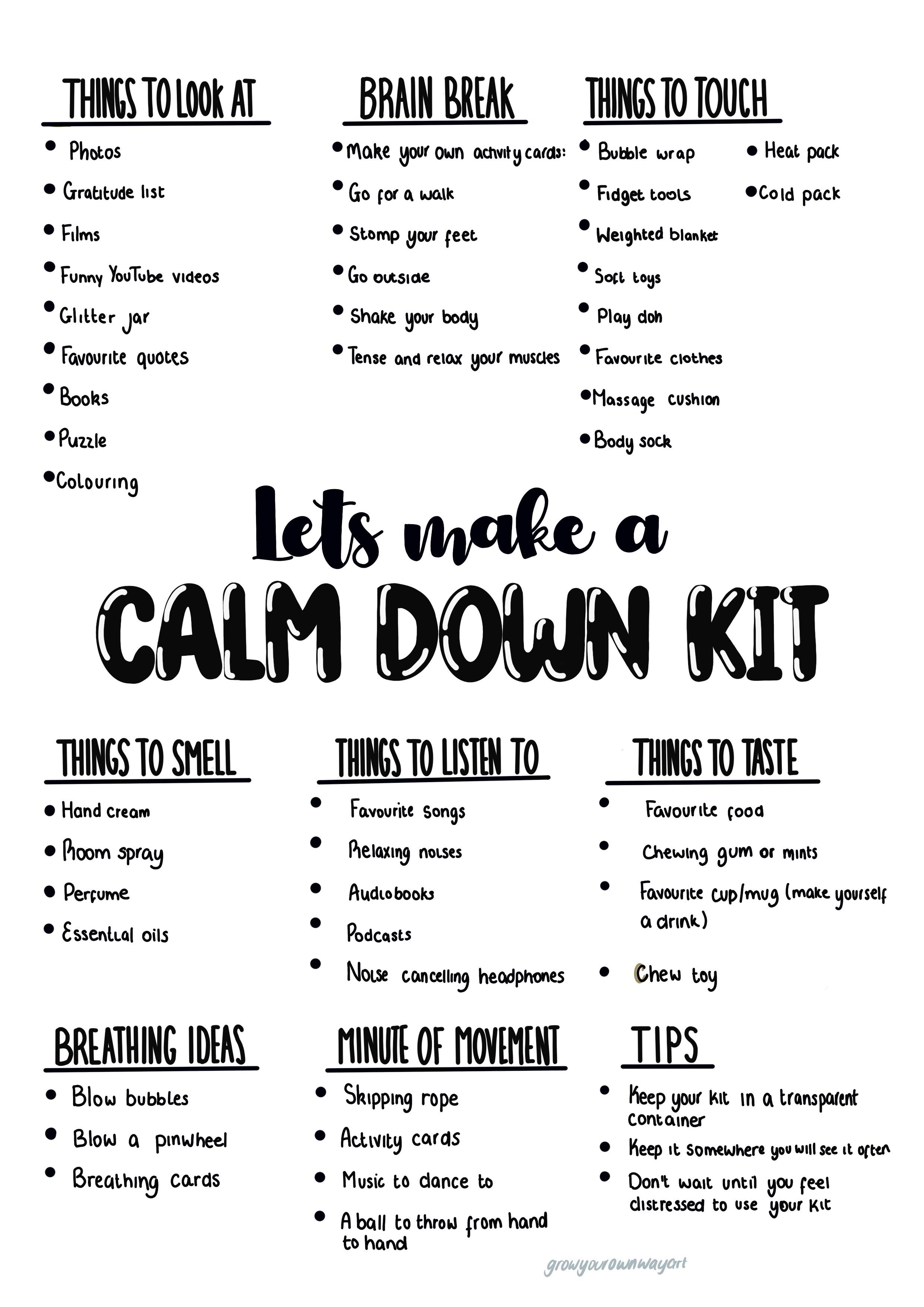
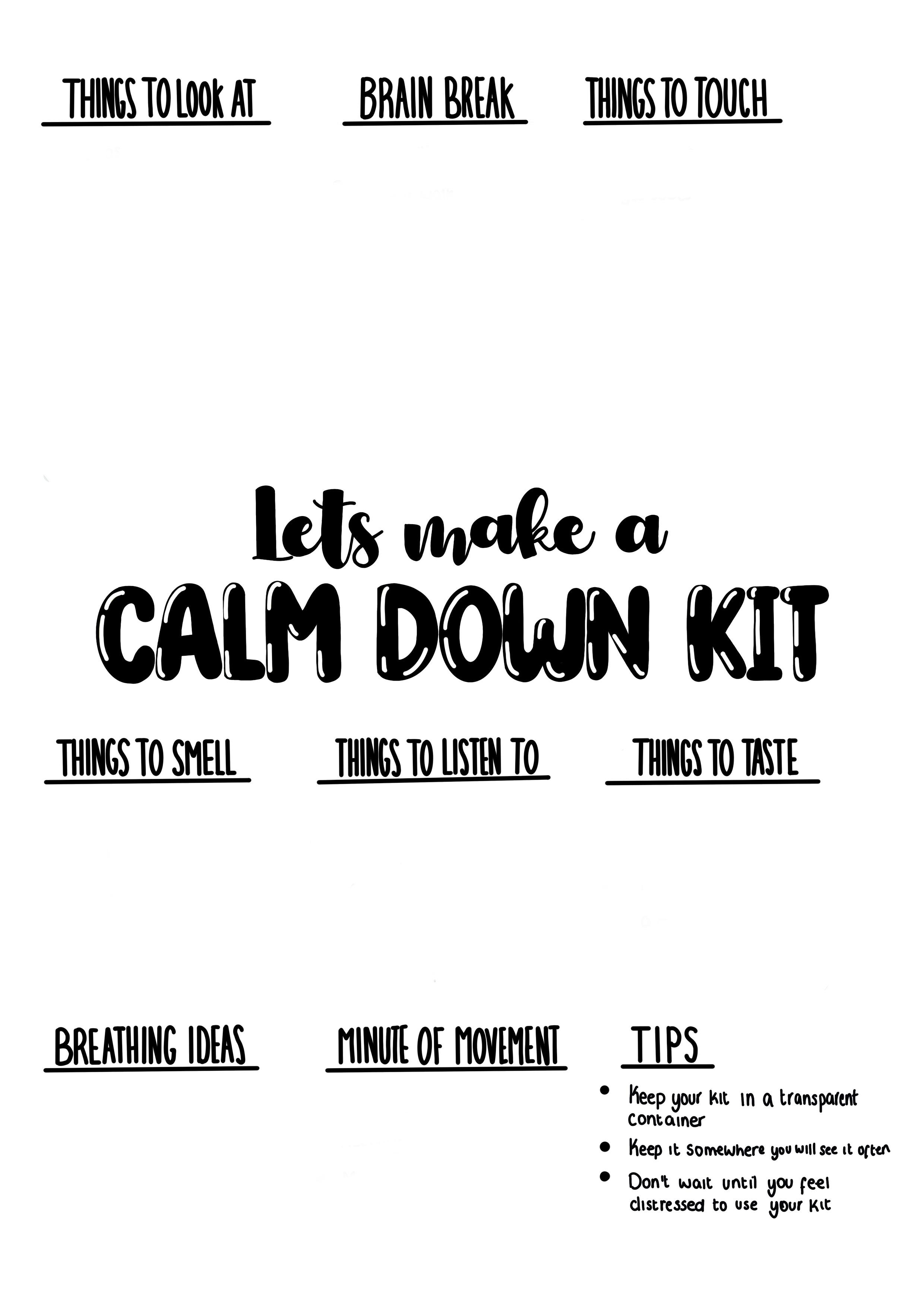

Thank you for reading PensaPride 2024: MHFA Zine (Vol. 1) !!
This collection you’re currently holding (or viewing digitally) would not exist without the help and hard work of so many wonderful folks from our community! We are honored to feature the artworks, insights, and lived experiences of these mental health practitioners who not only offer LGBTQIA2S+ Affirming Care but who also have a deep understanding and appreciation for the complexities that exist within Queer Culture.
Lastly, this project is dedicated to all the folks that we’ve lost too soon.
May they live on in the stories we share of their lives!
If you or someone you know is struggling with their mental health, consider reaching out for support and check out these resources below.
You are not alone.
